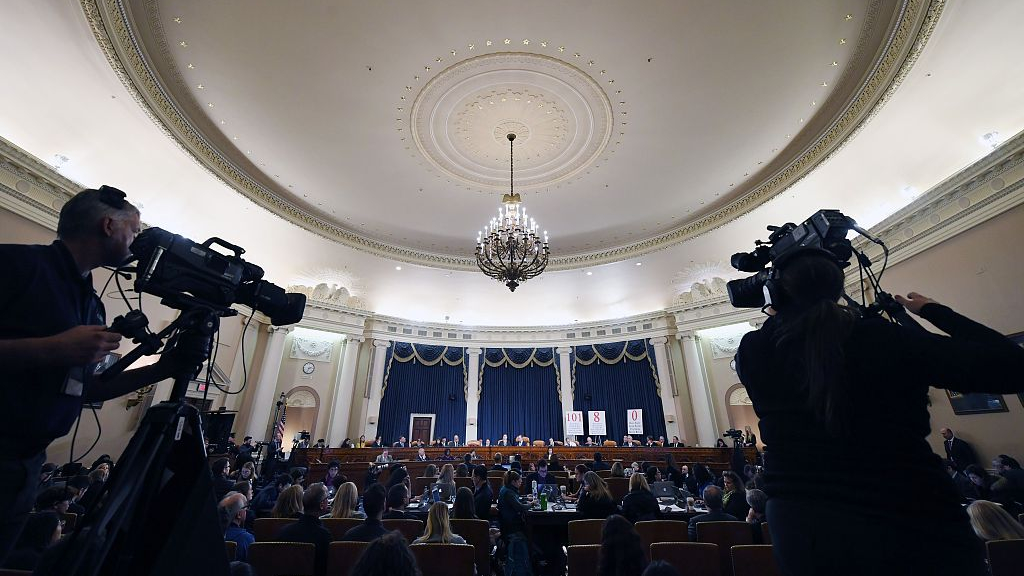
The House Intelligence Committee holds an impeachment inquiry hearing at the Longworth House Office Building in Washington, D.C. on November 21, 2019. (Photo: VCG)
People have begun to understand the necessity of public hearings after Gordon Sondland, the US ambassador to the European Union; David Holmes, a career diplomat and political counselor to the US Embassy in Ukraine; and Fiona Hill, a former senior official with the National Security Council on Russian and European affairs testified before Congress.
The hearings have delivered three important messages. First, Sondland's hearing provided key information that he believed there was a quid pro quo. Sondland talked about the lengthy and complicated conversations that took place between April, when Zelensky was elected, and September, when the military aid was finally released to Ukraine after being postponed for 55 days.
Second, Holmes added more details to the possible quid pro quo. He claimed that the second day after Trump's phone call with Zelensky, he overheard talk between Trump with Sondland in which Trump asked Sondland whether the Ukrainian president planned to conduct the investigation. Holmes believed that some officials understood Trump was pressing for the investigation into the former US Vice President Joe Biden.
Third, Hill claimed that the Trump administration had two conflicting agendas involving Ukraine. One is the traditional Ukraine policy of putting US strategic interest first. US domestic politics motivate the other. Hill accused Sondland of working outside the normal channels of interagency coordination. Hill also criticized Republicans for pushing a "fictional narrative" that Ukraine interfered in the 2016 presidential election and distracting public attention from Russia.
These new testimonies will damage Trump's image as a sitting president. The contradictions between Sondland and Hill make some people believe that the president and his team might have made mistakes when he put his political interest before national interest. Both camps once believed they were in charge of executing US foreign policy toward Ukraine.
But the hearings will not fundamentally change the prospect of the impeachment because no one had ever provided solid evidence that Trump directly linked the military aid to the Biden investigation. And although it is not clear how the US public would react to the latest hearings, after a week of hearings, more independents are opposing impeachment. According to a Politico/Morning Consult poll conducted from November 15 to 17, when asked about Senate removing Trump, 48 percent of the respondents support the removal, 2 percentage points lower than a week before.
The hearings are also ineffective in swaying Republicans in Congress to support impeaching or convicting the president. President Trump and his advisers are also actively engaging with Republican lawmakers to shore up their confidence and making plans together for a likely Senate trial if the House impeaches the president.
The public hearings are not sharp enough to break the almost unmovable public opinion and the intensified partisanship in Congress. The US is heavily divided, and Trump is pushing forward his own political agenda by taking advantage of the division.
To win the presidential election in 2020, the Democrats still need a viable candidate to challenge Trump. The impeachment hearings, at least, united their criticism of Trump in their primary debate on Wednesday as they focused more steadily on him rather than on launching ferocious attacks against each other.
However, the biggest challenge for Democrats is still to find a viable challenger who can galvanize a coalition representing a majority of voters to defeat Trump. Otherwise, Trump will use the impeachment as his own political weapon to fight back.


